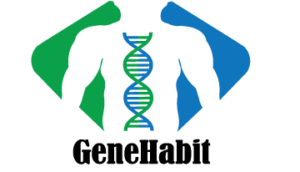Revealed: Which Vitamin Deficiency Causes Hair Loss?
Introduction
Hair loss worries many people. It’s linked to vitamin deficiencies. Our hair needs various vitamins for growth and health. Let’s explore how vitamins affect hair, signs of deficiency, and prevention tips. Understanding this link can help maintain healthy hair.
Which Vitamin Deficiency Causes Hair Loss?
The health of our hair is tied to eating the right balance of vitamins and minerals. When our body lacks key nutrients, it can cause hair problems. These include dryness, brittleness, and even hair loss. Research indicates oxidative stress may cause hair graying and loss. These vitamins are crucial for healthy hair: A, C, D, and E.
Vitamin A supports healthy cell growth, including hair follicles. Vitamin C boosts collagen production for hair strength. Vitamin D contributes to the maturation process of the hair follicle. Vitamin E defends follicles from oxidative stress. Include these vitamins in your diet for healthier hair.
Role of genes in vitamin deficiency: How it affects hair loss
Genes play a key role in addressing health issues like hair loss. Understanding this helps maintain optimal nutrient levels in the body. A study by the National Institutes of Health found genetics affect vitamin levels. Genetic variations can hinder vitamin absorption and utilization. These genetic variations can impact various aspects of nutrient metabolism. Such as:
A. Conversion of inactive forms of vitamins into their active forms,
B. Transport across cell membranes
C. Interactions with enzymes involved in metabolic pathways.
For example, a gene known as MTHFR has been linked to decreased levels of folate, which can lead to hair loss. A study found that VDR gene mutations cause alopecia totalis.
Role of Vitamins in Hair Growth
Vitamins are key for hair growth, supporting hair follicle processes. Hair grows, rests, and sheds in a cycle needing vitamin support.
Vitamins are involved in a key process: cell division. It is needed for hair follicles to make new hair. Vitamins, such as vitamin A, promote cell division and support the growth of healthy hair follicles. Vitamins help make proteins for strong hair strands. They’re crucial for hair growth and structure. Incorporating vitamins in our diet nourishes hair follicles, promoting healthy hair.
Essential Vitamins for Maintaining Hair Health
To maintain healthy and strong hair, essential vitamins play a crucial role. To keep your hair healthy, certain vitamins are vital. They help maintain its vitality and overall health. Knowing why these vitamins matter is crucial for healthier hair. They aid cell growth and maintain the hair growth cycle. To combat shedding and patchy hair loss, eat foods rich in vitamin C, B vitamins, and iron. Adjust your diet and use supplements to improve hair density and prevent hair thinning.
Men and women differ in their vitamin and mineral real requirements
Common vitamin deficiencies in men include:
(a) Vitamin D
(b) Vitamin B12
(c) Vitamin C
(d) Vitamin E
Common vitamin deficiencies in women include:
(a) Iron
(b) Vitamin D
(c) Vitamin B12
(d) Calcium
Exploring Vitamin and Mineral Deficiencies that Impact Hair Loss
Vitamin deficiencies play a crucial role in hair health and stunted hair growth. Deficiencies in vitamin D can cause hair shedding. A lack of B vitamins might lead to alopecia areata or telogen effluvium. Selenium deficiency cause hair cycle impairment and hair loss. Inadequate iron causes iron deficiency anemia, affecting red blood cells. It’s crucial for hair growth and division. Foods like fatty fish and sunflower seeds help hair density. Vitamins play a role in combating hair loss types.
1. Vitamin D Deficiency and Hair Loss
When your body lacks sufficient vitamin D, it can contribute to hair loss. Low levels of this essential vitamin may impact the health of your hair, leading to shedding and decreased hair density. One study has identified a link between low vitamin D levels and alopecia areata. Understanding the correlation between vitamin D deficiency and hair loss is crucial. Treatment usually includes daily vitamin D supplements, around 2,000-4,000 IU. It’s vital to maintain proper vitamin D levels for healthy hair. This can be done through diet or supplements.
2. Biotin Deficiency: A Silent Cause of Hair Thinning
lack of biotin can make hair thin. This vitamin helps hair grow healthy. Low levels cause more shedding and thinning. If your hair thins, check for low biotin. Talk to your doctor for solutions. Eat foods rich in biotin or take supplements for healthier hair.
3. How Lack of Iron Affects Hair Health
Iron is key for healthy hair, affecting growth and shedding. Low iron levels disrupt cell growth and hair cycles. Getting enough iron from food or supplements is crucial for healthy hair. Iron is key for hair density and overall hair health.
4. The Influence of Zinc Deficiency on Hair Growth
Zinc is an essential mineral impacting hair growth. Low levels of zinc can adversely affect the growth and overall health of your hair. To keep hair healthy, knowing how zinc affects growth is key. Low zinc slows hair growth, affecting density and quality. Fixing zinc deficiency can improve hair strength and health.
5. The Interplay Between Vitamin E and Hair Health
Exploring vitamin E’s role in hair health shows its impact. It’s vital for healthy hair and follicles. Vitamin E boosts hair strength and resilience. Embrace it for healthier, denser hair growth. It’s crucial for vibrant, strong hair.
6. Understanding the Role of Folic Acid in Hair Maintenance
Supporting your hair health, folic acid is key. It helps maintain healthy hair follicles. Learn how this vitamin boosts hair growth. Understand folic acid’s importance for better hair quality. Adding folic acid from greens or supplements promotes healthier hair growth. Ensuring you get enough folic acid fights hair shedding and boosts hair health.
Identifying Vitamin Deficiency: Signs to Look Out For
Symptoms of low vitamin levels can show in different ways. For example, hair loss or changes in hair thickness. Specific signs related to hair health may include patchy hair loss or thinning. For diagnosis, a blood test can reveal iron deficiency anemia. Low ferritin levels affect healthy red blood cells. Signs of mineral deficiencies can hinder cell growth. They are vital for healthy hair follicles. Try dietary changes and supplements. For example, take biotin. They combat hair loss and promote weight loss. They aid protein synthesis and fight hair loss varieties.
Common Symptoms of Vitamin Deficiency
When the body lacks essential vitamins, it may manifest in various ways. Digestive issues may indicate deficiencies, mood swings to imbalances. Weak immune systems result in frequent infections; slow wound healing lacks vital nutrients. Weak muscles and pain often signal low vitamin levels. This shows the vitamins’ importance for health.
Specific Signs Related to Hair Health
To check your hair’s health, watch for signs of thinning or loss. It could mean you’re lacking certain vitamins or experiencing poor nutrition. Dull and dry hair may point to nutrient deficiencies impacting your hair’s vitality. Changes in hair texture may signal a lack of vital vitamins. Slow hair growth might signal underlying nutritional issues that need addressing. Premature graying might show low vitamin levels affecting hair health.
How to Prevent Vitamin Deficiency Induced Hair Loss
Eating a balanced diet is key. It should be rich in vitamin C and B vitamins. This can support hair health and prevent hair shedding. Essential fatty acids, like Omega-3 and Omega-6, are vital for hair growth. They also reduce body inflammation. Fatty fish, sunflower seeds, and iron-rich foods fight anemia, helping hair growth. Consider dietary supplements if needed, but consult a professional for guidance. To boost hair health, consider iron or trace mineral supplements. Monitoring serum ferritin levels can help optimize hair density and combat hair loss. To keep your hair healthy, be proactive with nutrient intake. Deficiencies can lead to hair loss, so it’s important to maintain balance.
Importance of A Balanced Diet
A balanced diet is crucial for healthy hair and well-being. A diverse range of foods is essential for optimal nutrition and hair strength. Eating foods with lots of nutrients helps keep your hair healthy. These foods include lean meats, whole grains, and various fruits and veggies. Balancing proteins, carbohydrates, and fats in daily meals promotes proper hair growth. Hydration is key for nourishing hair follicles and maintaining a healthy scalp environment. Prioritizing a well-rounded diet contributes to healthier hair growth and vitality.
The Role of Supplements in Meeting Nutritional Deficiencies
To fill nutritional gaps, you need supplements. You also need a balanced diet and a healthy lifestyle. Consulting a healthcare pro before trying new supplements is key. Opt for supplements rich in vital vitamins and minerals that promote hair health. Exceeding daily supplement limits can lead to harmful consequences. Supplements can target nutrient deficiencies, improving overall well-being and hair health.
Decoding Myths and Facts Around Vitamins and Hair Loss
Separating myths from facts about vitamins and hair loss is key. Let’s dive into vitamin C, B vitamins, and supplements to clarify misunderstandings. Iron deficiency anemia and hair shedding impact hair health. Female pattern hair loss and androgenetic alopecia reveal patterns. Amino acids, healthy follicles, and trace minerals promote hair health.
Are Supplements Alone Enough to Prevent Hair Loss?
Supplements play a role, but a holistic approach to hair health is key. A mix of good food, healthy habits, and wellness helps prevent hair loss. Relying solely on supplements may not suffice in maintaining strong, healthy hair.
Can Overconsumption of Vitamins Lead to Hair Loss?
Excessive intake of vitamins can have negative effects, including potential hair loss. Certain vitamins in large amounts can worsen the problem. It’s crucial to balance vitamin intake properly. Consult a healthcare professional to prevent overconsumption and maintain overall health.
Seeking Medical Help for Hair Loss
If you’re experiencing sudden hair loss, seek medical advice promptly. Seeking professional advice becomes essential when hair loss impacts self-esteem or daily activities. Addressing potential underlying medical conditions linked to hair loss is vital. A thorough evaluation helps pinpoint the root causes of hair loss. For ongoing or unclear hair loss, seek medical help proactively.
Is Hair Loss Always Due to Vitamin Deficiency?
Exploring hair loss reveals a complex interplay of factors beyond vitamin deficiency. Causes vary; seek professional guidance for accurate diagnosis and treatment. A lack of vitamins can lead to hair loss.
Conclusion
Vitamin deficiencies can lead to hair loss. With a better understanding, you know which vitamins cause hair loss. You also know how genetics affect their use and absorption. Now, you can take proactive steps. Our HairLife DNA test provides a personalized hair loss solution. It focuses on vitamin and mineral deficiencies. This test uses your genetic profile to guide personalized treatment recommendations. These aim to improve your hair and overall health. Don’t delay addressing your hair concerns any longer—let’s start crafting your plan today. Simply fill out the form below to get started.
Frequently Asked Questions
Book a consultation
Simply fill in your details in the form below and we’ll get in touch with you shortly




